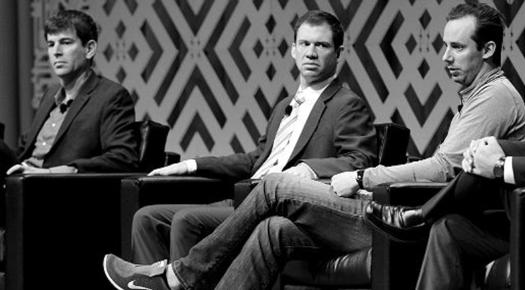
Strange religions or philosophies, such as the Church of Cannabis that is dedicated to worshiping marijuana, or Jediism which is inspired by certain elements of Star Wars, often arise and quite quickly are forgotten. Will that be the destiny of the new AI god?
Anthony Levandowski, the multi-millionaire engineer who once led Google’s self-driving car program, has established a nonprofit religious corporation called “Way of the Future.” This religious organization aims to “develop and promote the realization of a Godhead based on Artificial Intelligence.” The Way of the Future was created in 2015 but it was never reported on until now.
Levandowski was co-founder of autonomous trucking company, Otto, which Uber bought in 2016. He was fired from Uber in May amid allegations that he had stolen trade secrets from Google to develop Otto’s self-driving technology.
Levandowski worships the “Godhead” of AI but some religious scholars see artificial intelligence as a threat to humanity. Elon Musk has been especially vocal lately, famously comparing work on AI to “summoning the demon,” and warning again and again that the technology poses an existential risk to humanity. Christopher Benek, a pastor in Florida and founding chair of the Christian Transhumanist Association, argues that advanced AI is compatible with Christianity – it’s just another technology that humans have created under guidance from God that can be used for good or evil.
Way of the Future has not yet responded to requests for the forms it must submit annually to the Internal Revenue Service (and make publicly available), as a non-profit religious corporation. However, documents filed with California show that Levandowski is Way of the Future’s CEO and President, and that it aims “through understanding and worship of the Godhead, [to] contribute to the betterment of society.” The Way of the Future is a religion based on artificial intelligence — a belief system that deems self-thinking robots holy — and that’s something the world has never seen before.
According to The Guardian, Silicon Valley has sought solace in technology and has developed quasi-religious concepts including the “singularity”, the hypothesis that machines will eventually be so smart that they will outperform all human capabilities, leading to a superhuman intelligence that will be so sophisticated it will be incomprehensible to our tiny fleshy, rational brains.
Photo Credits: Wikimedia
